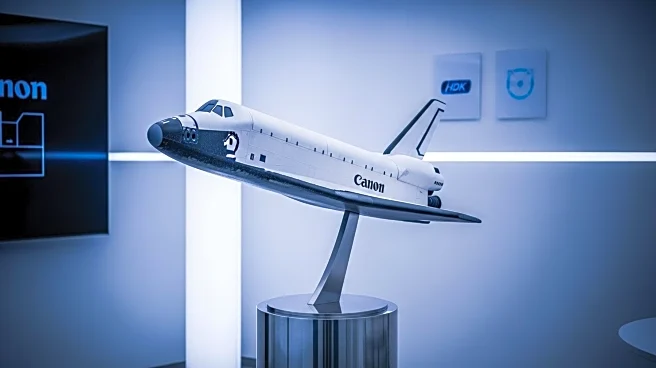What's Happening?
The White House is investigating the possibility of dismantling the Space Shuttle Discovery to facilitate its relocation from the Steven F. Udvar-Hazy Center in Virginia to the Space Center Museum in Houston, Texas. This consideration is part of a provision in a bill signed into law, which allocates $85 million for the move. The proposal has raised concerns among preservationists and space enthusiasts, as the shuttle's structure and historical integrity could be compromised. The Smithsonian Institution, which currently houses Discovery, has expressed concerns about the potential damage to the shuttle's aluminum frame and thermal protection system.
Why It's Important?
The decision to potentially dismantle Discovery highlights the challenges of preserving historical artifacts while accommodating logistical and political considerations. The shuttle is a significant piece of U.S. space history, having completed 39 missions between 1984 and 2011. Its relocation to Houston, a city with deep ties to NASA and space exploration, could enhance public access and educational opportunities. However, the potential dismantling poses risks to the shuttle's preservation, sparking debate over the best methods to balance historical integrity with practical needs. The outcome of this decision could set precedents for handling other historical space artifacts.
What's Next?
The Office of Management and Budget is currently reviewing the feasibility and implications of dismantling Discovery. The decision will likely involve consultations with engineers, historians, and stakeholders in the space community. If approved, the relocation process will require careful planning to minimize damage to the shuttle. The debate may also prompt broader discussions on the preservation of space history and the role of government in funding and managing such projects. The outcome could influence future decisions on the handling of other retired spacecraft and space-related artifacts.









